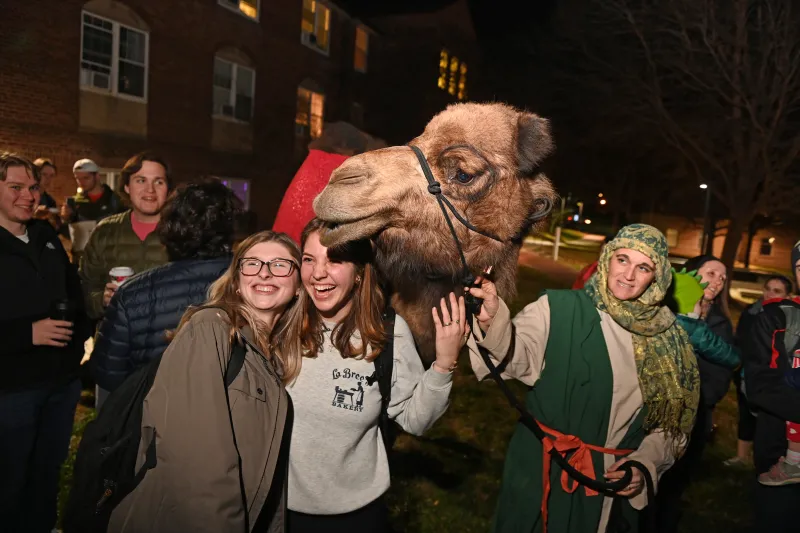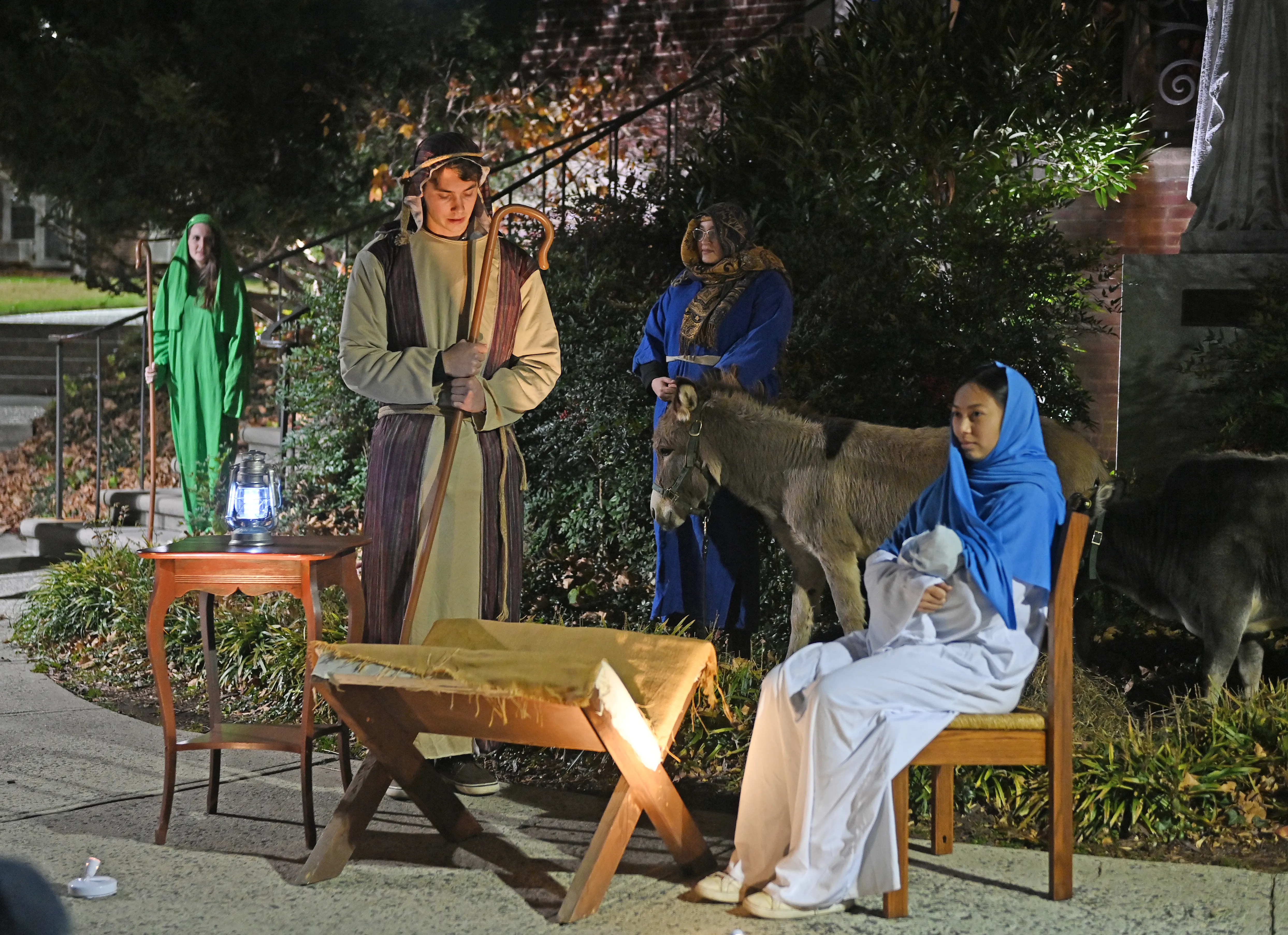
Washington D.C., Dec 12, 2021 / 22:29 pm (CNA).
You knew this wasn’t your average live nativity scene when you saw the camel.
Delilah, to be more precise.
On Sunday night, Dec. 12, she was the B.M.O.C. (Biggest Mammal on Campus) at The Catholic University of America — and the scene-stealing star of this year’s “Greccio,” a popular Advent event that pays homage to St. Francis of Assisi’s first-ever re-enactment of Christ’s birth, in Greccio, Italy, in 1223.
“Big” does not adequately convey Delilah’s dimensions. She measures 7 feet tall, from her well-cushioned feet to her impressive-looking hump, and tips the scales at approximately 900 pounds (not counting the 12 pounds of dormant grass she munched off the quad during her breaks.)
Delilah brought more than sheer size to the role of 1st century dromedary, however. With extraordinary patience, she let people stroke her surprisingly soft coat to their hearts’ content, and she posed like a pro for hundreds of selfies, looking directly into the camera with what looked an awful lot like a smile.
“Steady … cheese!” her handler, Jennifer Caton of Bar C Ranch, prompted her. Delilah got an animal cracker each time she complied, which was almost always. (This wasn’t her first rodeo — er, nativity scene.)

Catholics in St. Francis’ day had become consumed with worldly cares. Reenacting the nativity at a cave out in the countryside, he hoped, would re-focus their attention on God’s profound humility and love.
The Conventual Franciscan friars in charge of the university’s campus ministry had a similar goal in mind when they initiated the first Greccio event on campus seven years ago. Coming at the end of the semester, it serves to remind students that there is more to celebrate this time of year beside the end of finals.
Held outside the St. Vincent de Paul Chapel, Sunday’s observance featured carols and scripture readings; costumed shepherds, wise men, and the Holy Family; hot chocolate and humongous home-baked cookies … and one very cool camel, among assorted other animals.
There were lots of little kids in attendance — the free event is a huge hit with young families from the surrounding Brookland neighborhood — but nobody seemed more overjoyed to see Delilah than The Catholic University of America students, who welcomed the interruption from their exam week studies.
“I didn’t know there was going to be a camel here,” said Emily Thomas, 19, a freshman from Baltimore who was taking a break from writing a 10-page paper on the Beatitudes.
“She’s like the coolest animal I’ve ever seen,” said a smitten Ben Rees, 19, a sophomore from Smithfield, Rhode Island, who had already knocked out two papers on Sunday but still had one to go.
“I love this,” said Susan Gibbs, the university’s interim executive director of communications, as she watched the festive scene unfold.
This was her first Greccio, and she seemed as delighted to be there as the students. “I mean, how often do you get to meet a camel?” she said.
If you value the news and views Catholic World Report provides, please consider donating to support our efforts. Your contribution will help us continue to make CWR available to all readers worldwide for free, without a subscription. Thank you for your generosity!
Click here for more information on donating to CWR. Click here to sign up for our newsletter.




Leave a Reply